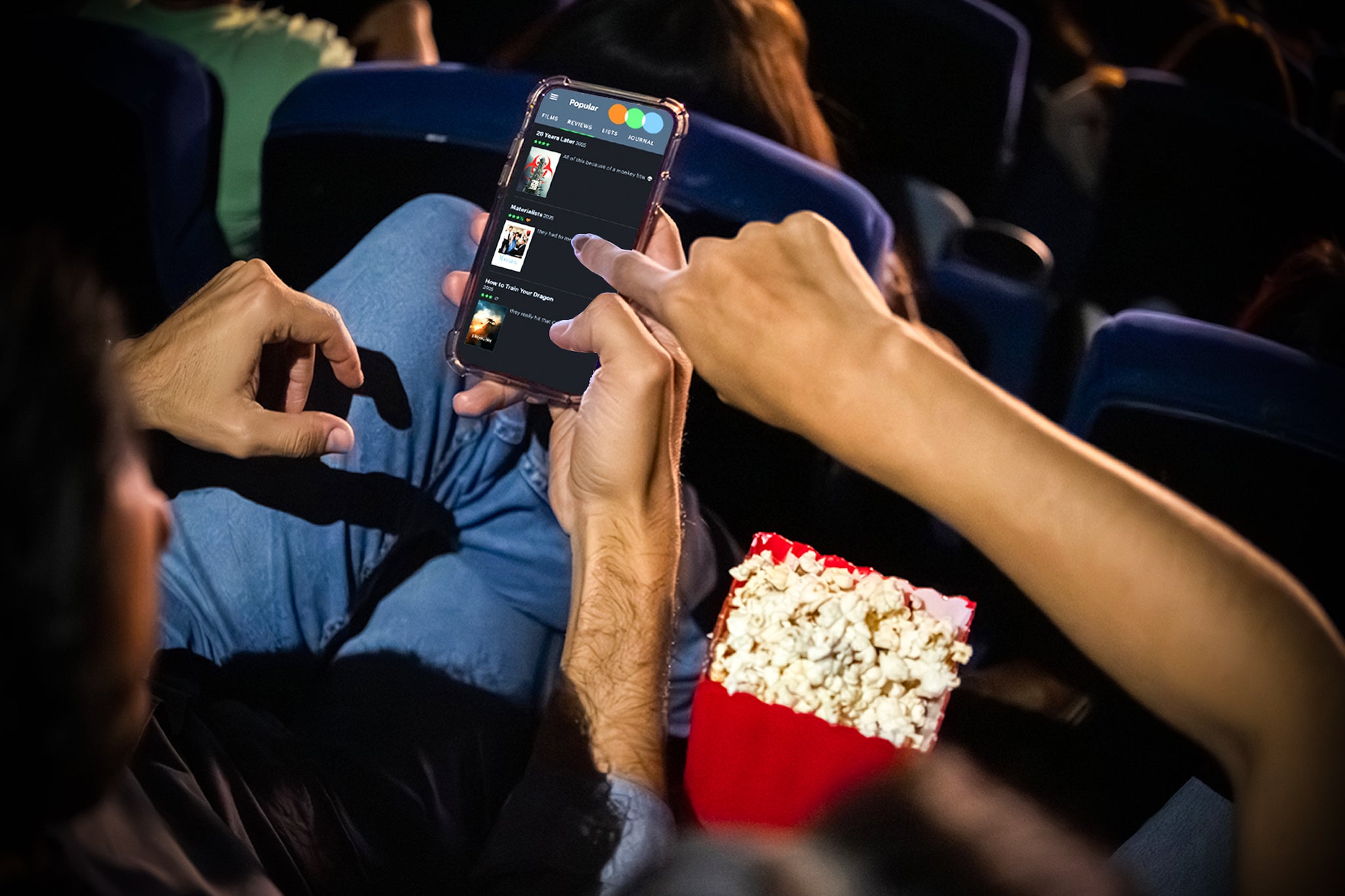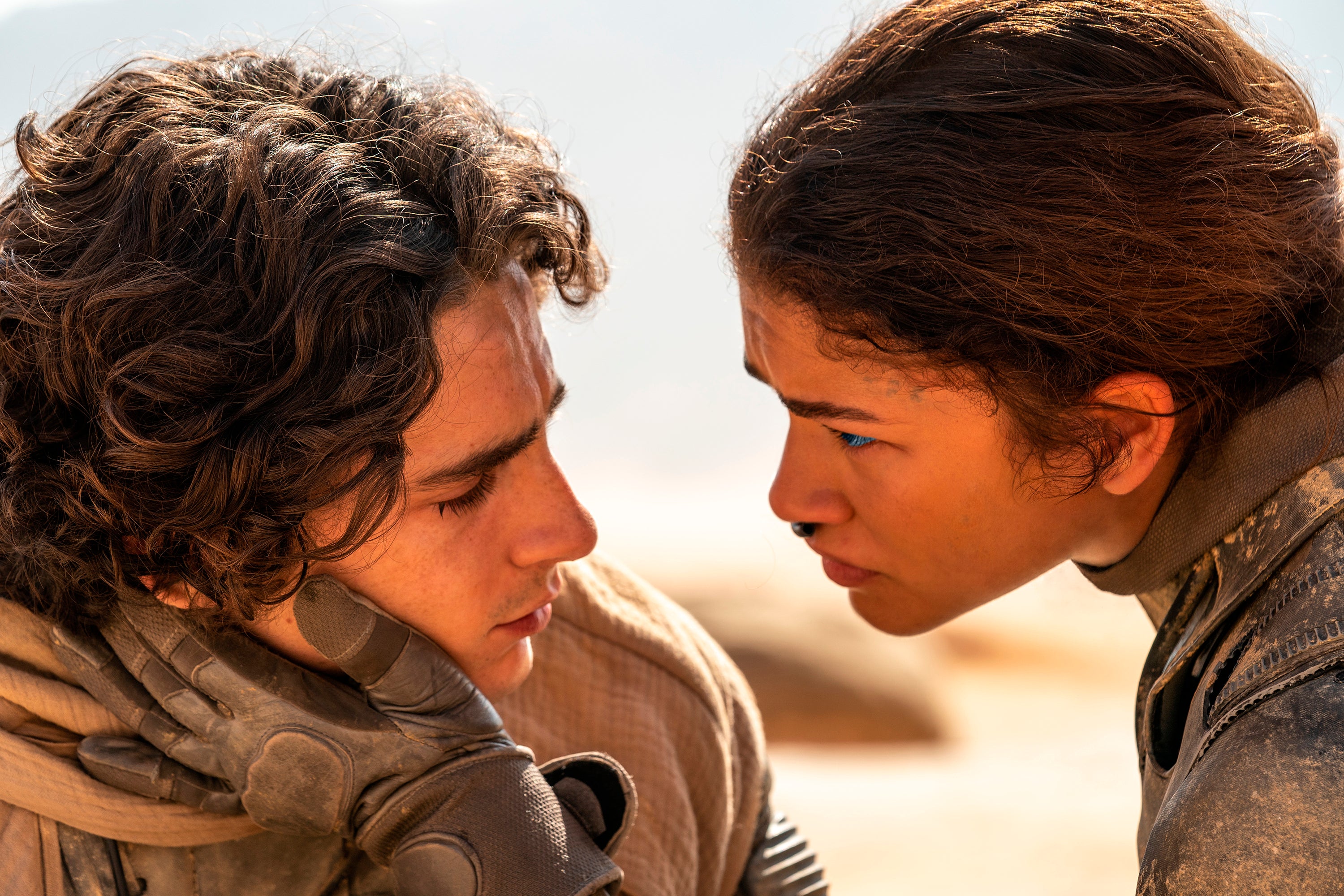Go back 10 years, and the word “Letterboxd” would have read simply as a typo – unless you were a particularly online film nerd, that is. When Kiwi web designers Matthew Buchanan and Karl von Randow set out, in 2011, to launch a new website for cataloguing and sharing your personal movie-watching history, its initial userbase was a small, devout tribe of scattered cinephiles. By the start of this year, this base had swelled to 17 million, having ballooned in popularity during the pandemic (In March 2020, that figure was still at 1.8 million). Among their ranks are a host of A-list celebrities – from Charli XCX to Martin Scorsese to Ed Sheeran – and a disproportionate contingent of Generation Z; the platform once envisioned as cinema’s answer to Goodreads is becoming a redoubtable force in the shaping of film culture’s future.
There are those who see Letterboxd – and its stats-centric, somewhat performative approach to 21st-century movie-watching – as a bad thing. It’s true, to some extent, that the app “gameifies” engagement with the art form, reducing it, for some people, to the same sort of clout-chasing brand building that can be found on sites such as Instagram and TikTok. But it would be imprudent to dismiss the benefits of Letterboxd. The app has risen to prominence at a time when the industry is in widespread panic that going to the cinema, as a hobby, is in an unstoppable decline. Younger people in particular are more likely to eschew the big screen in favour of staying home and streaming. Letterboxd – a communal celebration of cinema purism – may be a key way of securing the medium’s survival.
Let me, for a second, explain Letterboxd’s appeal. For some, it’s just a useful way of diarising one’s own viewing habits, of keeping track of time spent, well or poorly. Logging a film on the website gives the option of adding a star rating, and a written review: some people write essays with academic ambition; others share tweet-like pith. While sites such as Rotten Tomatoes and IMDb are still the go-to forums for amalgamating review scores, Letterboxd also functions as a sort of bespoke – and more trustworthy – alternative: if there’s a new film out, you can see which of the accounts you follow have seen it, and what they thought of it.
The app is free to use, but it’s surprising just how many people pay for the Pro account, which enables you to view detailed statistics for your entire viewing history – which actors and directors you’ve watched the most, which decades you prefer, etc, etc. For anyone who’s obsessive about film, this sort of data is illuminating and addictive, even if you mostly end up walking away asking, “God, have I really seen that many Woody Allen movies?”
Many of the higher-profile Letterboxd accounts belong to those within the film industry – filmmakers (including recent Oscar winner Sean Baker, Edgar Wright, and Martin Scorsese) and actors (for instance Kyle MacLachlan, or Carrie Coon, who has a joint account with husband Tracy Letts). But there are also film journalists (including most of The Independent’s culture desk), comedians (James Acaster; Nish Kumar) and even, as of March, Jeremy Corbyn. (The former Labour Party leader’s first logged film, I, Daniel Blake, was on-brand to the point of self-parody.) Sheeran and Olivia Rodrigo have admitted to having secret Letterboxd accounts; a profile believed to be Margot Robbie’s was deleted after being unearthed by fans in 2022. And Charli XCX revealed earlier this year that she’d been using Letterboxd since 2023, under the username “itscharlibb” – what greater endorsement of young-millennial cool could there be?
In a way, Letterboxd offers more authenticity than an Instagram or a TikTok, with their carefully curated fictions about people’s day-to-day lives – celebrities in particular. It’s humanising, in a strange way, to know that Charli XCX spent her free time during this year’s Brat Tour unwinding with Annie Hall, Mike Leigh’s Naked, and Wallace and Gromit: Vengeance Most Fowl. The candour can be troublesome: Marvel star Iman Vellani was found to have given the MCU film Captain Marvel just two stars in a review, shortly before she starred in its sequel; The Bear’s Ayo Edebiri, incidentally the most popular user on the entirety of Letterboxd, was mobbed online for her benignly snarky take on Emerald Fennell’s divisive class-war satire Saltburn. Most fascinating may be Paul Walter Hauser, the talented and inscrutable star of Clint Eastwood’s Richard Jewell, who has a bizarre willingness to hand his own films middling reviews on the site.
But this same fascination applies just as readily to the non-famous. There’s a banal candour in revealing to the world that you’ve spent the weekend chain-watching Harrison Ford thrillers. And when a big, hit film comes out in cinemas, the influx of opening-weekend reviews on Letterboxd seems to summon, seance-like, the sense of immediate monoculture that many say has vanished from the latter-day internet.

The comparisons to Goodreads have been present from the outset, but Letterboxd’s success has made clear the ways in which cinema is a medium far more suited to the ever-present churn of social media. Films can be watched, logged, and potentially forgotten about within a matter of hours – as opposed to the lengthier commitment of a novel. A couple of years ago, Letterboxd made the divisive announcement that it would be integrating TV series into its system, an idea that would have introduced a host of logistical problems – it’s probably no wonder that the plan seems to have been discreetly shelved.
For young people in particular, Letterboxd has started to serve as a gateway into film, steering budding movie lovers towards what they should watch. In this sense, it’s both useful and limiting that the site operates as a sort of democracy: whether you’re the film critic for the New York Times, a world-renowned celebrity, or a teenager living with their parents in rural Hampshire, everyone gets the same say.
The Letterboxd Top 250 – skewed, inevitably, towards the predilections of its young userbase, with a fair amount of recency bias – nonetheless gives valuable insight into what sort of films will be considered the classics of the future, and indeed which classics from years past look set to endure. Asian films are particularly well represented (Masaki Kobayashi’s 1962 masterpiece Harakiri is actually the No 1 film), while modern blockbusters such as Dune or Spider-Man: Across the Spider-Verse place highly. Citizen Kane, the film long considered the epitome of cinematic perfection, does not make the list at all.

As Letterboxd has exploded in popularity, it has branched out into other aspects of film culture: the website now has a bustling section for film criticism and interviews; Letterboxd journalists can regularly be seen on the red carpet, asking actors to name their “Four Favourites” (a quartet of best-loved films that users display on their profile). London’s treasured Prince Charles Cinema is currently running a lengthy season of films pulling exclusively from the Letterboxd Top 250 list. It’s even becoming unremarkable to see someone reference a Letterboxd account on, say, a dating app profile.
“I think Gen Z are missing community spaces where we can discuss these sorts of things, so we’ve resorted to online communities in apps tailored to [specific] interests,” says Tallulah, 23, from Gloucester, one of Letterboxd’s millions of Gen Z users. “I also love seeing what my friends are up to, what films they’re watching. I feel that feeds into the lack of community feeling – because I don’t see them on a regular basis, at the very least I get to see what they thought of the new Mission: Impossible.”
This fundamental sense of community may be what elevates Letterboxd above any criticisms of it; with internet forum culture long having receded from the mainstream, and the norms of offline socialisation also experiencing a generational shift, the app is fulfilling a vital role in movie culture – providing a platform to, as it were, compare notes. If cinema is to survive into the future, it must adapt to a world that revolves around social media, and Letterboxd is, so far, the best attempt to reckon with this. Its influence isn’t abstract, but tangible: Deadline has described the platform as “perhaps the most effective tool for independent film”, noting that it is “now a key driver of the indie box office with distributors frequently citing Letterboxd when opening a film theatrically”.
“We’re not scared of growth,” said Buchanan, in an interview with ScreenDaily earlier this year. “What we want to ensure, as best we can, is that it’s film lovers, the cinephiles, that we’re continuing to attract.” For now, it seems like it’s doing more than just attracting them – it’s creating new ones, too.
Glastonbury 2025 hit with cancellation day before festival starts
Brat summer is forever at Charli XCX’s victory lap LIDO Festival show – review
The Grammys tweak rules to create two new categories for 2026
17 movies that gave away the big twist early on – but nobody noticed
28 Years Later’s mind-boggling twist is scandalous and utterly fascinating
Danny Boyle: ‘Britain’s on the decline – whether people like it or not’







